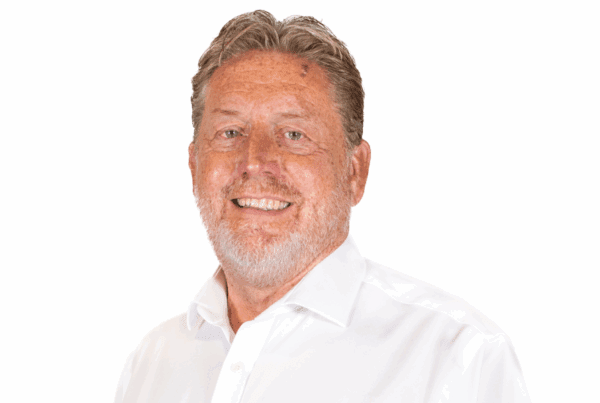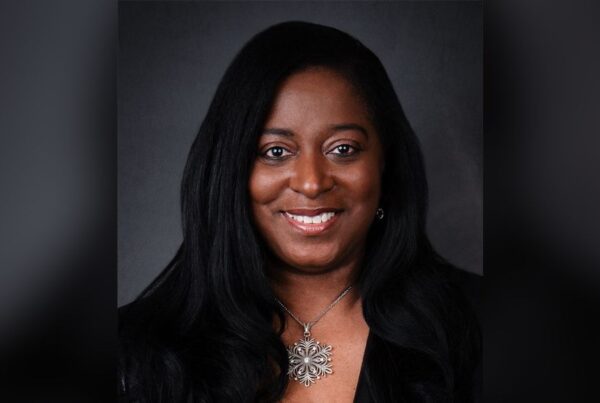
Clarke went on to become the CII’s treasurer between 2003 and 2007 and was appointed president in 2018, with his driving theme being the development of a united profession. For him, he said, the key was to be united around standards and professionalism, as well as the diversity of the activities that insurance professionals are involved with and, perhaps most importantly, the diversity of the customers they serve and their diverse needs.
“During my year as CII president, I travelled the country visiting various local institutes, attending all kinds of interesting and diverse events,” he said, “and witnessing the tremendous work our members do every day to promote the standards and professionalism of our sector. Being out here and meeting members and the customers we serve in their hometowns is a great way to both see the value of what we do and also to learn about what we might do better, or in a more helpful way.”
In his time as president, Clarke said he was continually reminded of how important it is for insurance professionals to also make time to celebrate their successes, be that through exam awards or during the Public Trust Awards, which speak to professionalism in a truly positive way. One of the dangers in taking on a position like CII president is that you’ve been involved for a while, he said, and it is easy to assume you know how things work and what members are looking for. It is those visits to local institutes that keep you grounded and aware of the importance of keeping the CII relevant, he explained.
Exploring that relevancy, Clarke highlighted that 2022 marks 125-years since local institutes came together to form the federation which would evolve into the CII, a professional body worthy of a Royal Charter to raise public trust in the profession. Reflecting on that history, and the impact of the pandemic on the profession and the public the institute serves, he said, he still sees evolution.
“The Federation’s initial aim was to produce technical papers – akin to the good practice guidance issued via the [CII]’s Societies of insurance and personal finance professionals today – and to establish examinations,” he said. “Our first president remarked: ‘The demand of the day is for technical education in every branch of skilled industry. Is, then, instruction in insurance business not to advance with the times?’
“At the start of the 20th century, CII president F.W. Pascoe Rutter noted: ‘Working together, as one united profession, we will drive confidence in the power of professional standards.’ The [CII]’s leadership recognises that we must continue to evolve to meet the needs of insurance and personal finance professionals for relevant learning and a benchmark for professional standards.”
It was this thinking that was behind the launch of the Shaping the future together consultation in 2021, he said, an initiative that encouraged members to share their views on proposals for how the CII will work. The CII will share the findings of the consultation, and how it will help shape the group’s work to ensure it continues to raise trust in the insurance profession, this year.
Read more: Applauding insurance’s New Generation
Clarke noted that Fisher’s announcement last year that she would leave the CII on March 31 was consciously timed to see through the Shaping the Future together consultation process, cover the 2021 financial year-end and ensure her permanent successor would be able to take forward the board’s refreshed strategy and the next five-year plan for the CII.
It was to ensure continuity during 2022, that he been appointed as interim CEO until the permanent CEO is in place, he said, and the recruitment process for a new CEO is well underway and being led by the CII’s chair, Dr Helen Phillips, and the CII board.
“As a past president and CII treasurer between 2003 and 2007,” he said, “I am aware of the wonderful work the institute, along with the local institute, membership society, practitioner panel and regional committee volunteers, do to raise trust in the insurance and personal finance profession. I hope to couple my deep understanding of our organisation with my expertise from working in the insurance profession, links with the personal finance profession and engagement with regulators to bring immediate benefits to the CII as a professional body and to our members.”
His role is to keep the CII looking forward and allow the new CEO, when appointed, to step into the job and develop the strategy to take the CII into the next period. The organisation has had a successful consultation with members, he said, and will want to look at what that means for the institute, and to produce a deliverable plan for the organisation and its members.
Looking to his own points of focus during his tenure as interim CEO, Clarke highlighted that he wants the insurance and personal finance profession to utilise the diversity of its skills to continue to make a positive impact on the financial resilience of society. For many years, he said, his hobby has been sailing – a sport that embodies teamwork. Teamwork is something he has always believed is incredibly important.
“In the way the CII is structured, we have a great opportunity to work together,” he said. “Working together, we can train, teach, mentor, inform and educate each other and, in the process, we can help foster the trust in our profession that we all want to see. A friend’s mother used to say ‘we are all special, we are all unique’. I believe my role is to foster that sense of inclusiveness that allows us to build the team here at CII. But we must respect that our members have individual needs while still being in so many cases part of teams delivering on the wide range of financial services we collectively offer our customers.
“Professionalism in all we do in financial planning and advice and insurance is a key plank in public trust.”




